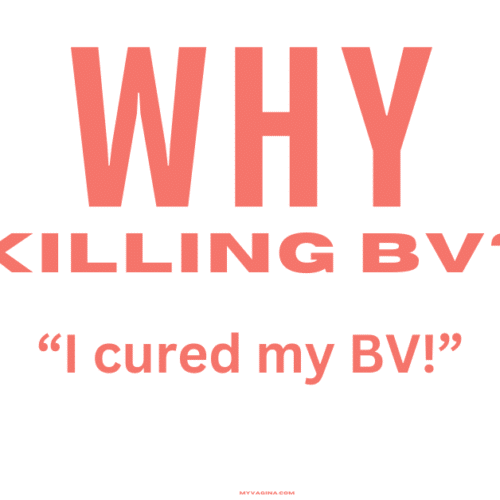Managing insulin resistance in PCOS
Polycystic ovarian syndrome (PCOS) is thought of as a hormonal condition with a focus on either excess androgen production, or oversensitivity to androgens in the body, but it’s much more than that.
PCOS is a syndrome that is closely linked to the action of insulin, for complex reasons. In a nutshell, PCOS is caused by poorly controlled insulin, which triggers excess androgens.
This hormonal cascade results in irregular periods, infertility, acne, hair loss and male-pattern hair growth. Every one of these symptoms can be incredibly distressing for women, with medical treatment masking the problem.
Not every woman who has PCOS has insulin resistance, but most do. This means your cells are not as responsive to insulin as they should be (resistant to insulin), and your body produces more insulin to combat this.
You end up with a lot more insulin in your system than is normal, and this excess insulin pushes the buttons, so to speak, of other cells to cause some unpleasant, uncomfortable secondary effects: symptoms of androgen excess.
What is insulin?
Insulin is a hormone produced in the pancreas, to get the sugar, from the food you eat, safely out of your blood and into your cells so they can produce energy.
When you are insulin resistant, you need much more insulin to open up your cells to let the glucose in. This extra insulin stimulates cells on the ovary to produce more androgens.
If you have a diet high in sugar and carbohydrates, you may have more androgens in your body, causing these symptoms. It is not surprise then, that diet has a huge impact on PCOS symptoms. The beauty of this is that you are in control.
The trick? Eat a low-glycaemic diet
Low-glycaemic foods are any that cause a slow, steady release of glucose into the blood. This means just a small amount of insulin is released. Any high-glycaemic foods can cause a large spike in blood glucose, causing a spike in insulin.
Two major foods to avoid
- Sugar – sugar from packaged foods, juice, soft drinks, hot drinks, sauces, syrups, honey and dried fruit – anything sweet has sugar in it
- Refined carbohydrates – cakes, pastries, bread, pasta, white rice, pastries, biscuits
PCOS-friendly low-glycaemic foods to eat
- Proteins – lean meat, fish, seafood, eggs, nuts, seeds, tempeh, tofu, and dairy (but with cautions – see below)
- Fibre-rich food – vegetables, fruit, nuts, seeds, whole grains, legumes
- Healthy fats – omega-3-rich fish, walnuts, chia seeds, flaxseeds, olive oil, avocado, nuts, seeds, coconut oil
Shopping low-glycaemic
Luckily, the diabetes epidemic has come before you and there are plenty of diet books for diabetics that are healthy, delicious, low-glycaemic eating. Seek out these recipe books, find your favourites, and you will soon understand how to make food delicious without it being high in carbs or sugar.
‘Quitting’ sugar can be incredibly difficult at first, but just stay the course and the cravings will wear themselves out and once they’re gone, they won’t come back. If you aren’t big into cooking, it might be helpful to prepare food in advance in a big batch. Freezers are your friend.
Don’t let yourself get hungry without having something to eat, because your brain will immediately demand glucose – sugar, carbs – because it requires energy, so you need to be prepared. Always carry some nuts and seed mix with you to stave off hunger in a pinch.
Dairy intake and PCOS
Many women with PCOS don’t tolerate much dairy – dairy typically contains high levels of insulin-like growth factor, which acts very much like insulin (hence the name).
It can be useful to use dairy as a condiment, instead of the main event – say a few spoonfuls of yoghurt in a curry or with fruit, or crumbled feta in a salad.
Avoid skim milk and diet dairy products at all costs. There is something about the removal of the fat that leaves the insulin-like growth factor unimpeded.
Fresh fruit intake and PCOS
Fresh fruit is high in fibre, which slows the sugar absorption somewhat, but don’t go nuts on fresh fruit. Two or three pieces per day is plenty.
Things to remember when eating for PCOS:
- Eat a source of protein with every single meal to help slow your digestion and the release of energy.
- Choose lean protein – avoid really fatty meats for the most part, since maintaining a healthy weight is also a key part of managing PCOS
- Go slow! Learning how to eat like this is a skill and will take time, patience and dedication. Don’t go too hard too fast, or you risk using up all your staying power. Introduce a new thing every week if you have to. Having the time and support to radically change your diet is important. You want this to be sustainable, because your PCOS isn’t going anywhere. This is for life.
How long does it take to see results from changing your diet?
If you eat like this all the time, your sugar cravings will completely drop off, your energy levels will increase (due to sustained release of glucose), you will start to lose weight and your PCOS symptoms will abate.
Sometimes it takes longer for this change to occur, so your results will be individual. Sometimes it can be hard to stick to the changes, so results will take longer. Herbal medicine and nutritional supplements come into play here, to help fast-track results.
Herbs and nutrients for PCOS
- Chromium (sugar cravings)
- Magnesium (sugar cravings)
- Myo-inositol (sugar cravings)
- Cinnamon (sugar cravings)
- Gymnema (sugar cravings)
- Liquorice (regulate hormones)
- Peony (regulate hormones)
Getting professional support for PCOS
You can manage this adequately on your own with the right information. The PCOS Solution ebook is an excellent basic guide to understanding and managing PCOS, and includes specific prescriptions for herbs and supplements, and detailed easy-reading explanations of PCOS with pretty pictures.





